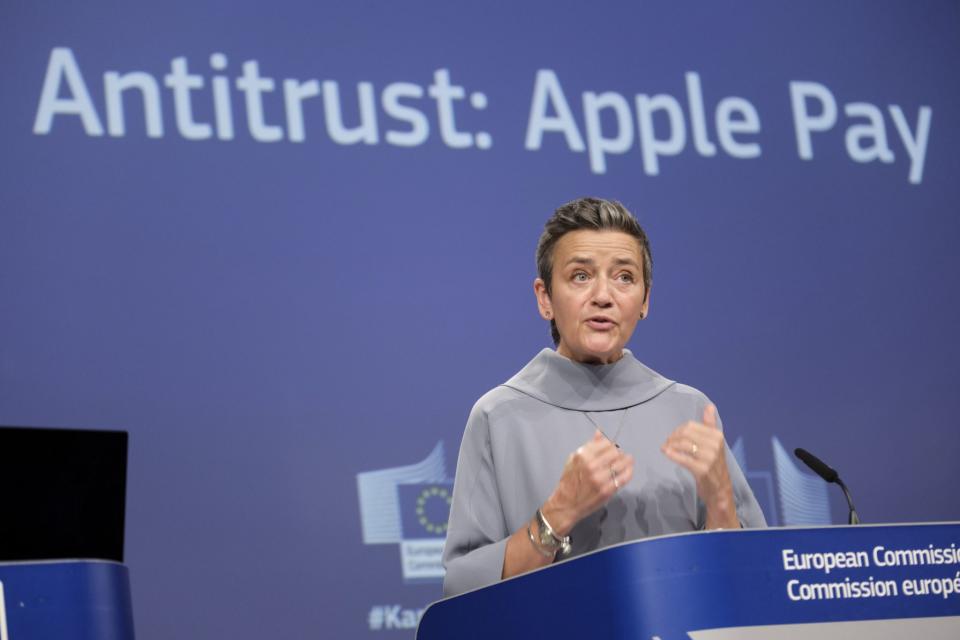Apple loosens its grip on iPhone payments to end EU antitrust case

Good news for iPhone users: You will no longer have to use Apple Pay for tap-to-pay payments! Apple has decided to give a boost to third-party mobile wallet developers, by finally granting them free access to the handset’s near-field communication (NFC) contactless technology.
Now the bad news: The above does not apply to you if you live outside the European Economic Area, meaning the EU plus Norway, Iceland, and Liechtenstein.
Apple is only changing its ways to end a long-running antitrust case. The European Commission began investigating Apple’s restrictions on the iPhone’s NFC chip over four years ago and issued charges in 2022. Apple proposed changes earlier this year. The Commission asked app developers and various financial services companies for their opinions, then asked Apple to make some tweaks. Apple came back with a revised set of commitments, which the Commission announced today.
Under the commitments, Apple will have to give third-party mobile wallet developers NFC access for free, using a fair and objective process to decide their eligibility. These third-party wallets will run in host card emulation (HCE) mode to ensure secure storage of payment credentials, as already happens on Android. The Commission claims this is as secure as Apple Pay’s method of relying on a hardware “secure element” to protect details, and offers the same user experience.
Users will get to choose whichever wallet they like as the default, so it automatically pops up with a double-click on the side, or when the phone is placed next to a reader. People with Apple IDs registered in the EEA will also get to tap away with third-party wallets while traveling outside the region, but only if they’re on a temporary trip. Developers will also be able to combine their newfound payments functionality with other NFC-based features like using the phone as a concert ticket or car key.
The European Central Bank has given its stamp of approval to the changes, though it also suggested Apple might find itself saddled with further obligations when the digital euro becomes a reality (it’s currently in the preparation phase).
“From now on, Apple can no longer use its control over the iPhone ecosystem to keep other mobile wallets out of the market,” crowed the Commission’s antitrust chief, Margrethe Vestager, in a press conference today. “Competing wallet developers, as well as consumers, will benefit from these changes, opening up innovation and choice, while keeping payments secure.”
Taken alongside Apple’s grudging acceptance of third-party iOS app stores—one of its many obligations under the EU’s new Digital Markets Act—it’s clear that the company's control is eroding fast.
This may only affect Europe for now, and there may yet be teething trouble in the implementation, but Apple’s big problem is that the rest of the world is watching. If third-party app stores and wallets can work in Europe without the sky caving in, then they can work elsewhere. And when the U.S. Federal Trade Commission or some other national regulator proposes a similar change, Apple won’t have much of a counterargument.
In other Apple news, Bloomberg reports that the company’s $3,499 Vision Pro virtual-reality headset still hasn’t broken the barrier of selling 100,000 units in a quarter, and U.S. sales in particular are likely to crater until a cheaper version comes along.
More news below.
David Meyer
Want to send thoughts or suggestions to Data Sheet? Drop a line here.
This story was originally featured on Fortune.com

 Yahoo Finance
Yahoo Finance 